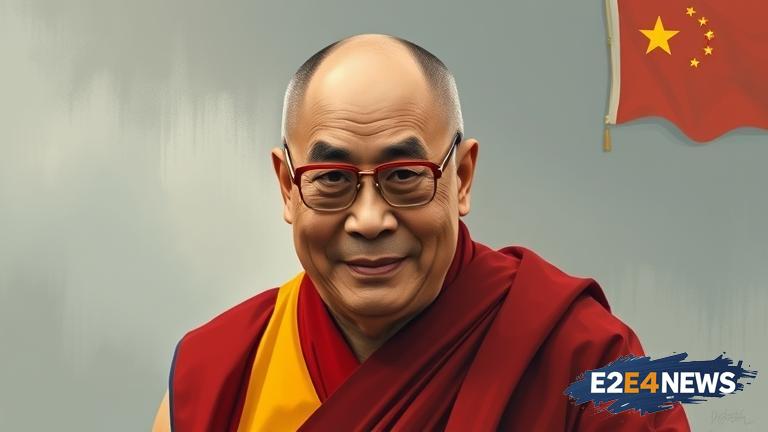The Dalai Lama, the spiritual leader of Tibetan Buddhism, has been a thorn in the side of the Chinese government for decades. As he approaches the end of his life, the question of his succession has become a major concern for Beijing. The Chinese government has long claimed the right to appoint the next Dalai Lama, but the Tibetan spiritual leader has other plans. The Dalai Lama has stated that his successor will be chosen through a traditional process, involving the Tibetan people and the High Lamas of the Gelugpa tradition. However, China has already begun to exert its influence over the selection process, with the Chinese Communist Party (CCP) seeking to install a puppet Dalai Lama. This has sparked fears among Tibetans that their cultural and religious heritage will be erased. The Dalai Lama’s succession is not just a matter of spiritual significance, but also has important implications for regional stability. The Tibetan Plateau is a strategic location, bordering several countries, including India, Nepal, and Bhutan. China’s control over the region is crucial to its national security interests, and the Dalai Lama’s succession could potentially disrupt this. The Chinese government has already begun to crack down on Tibetan dissent, with increased surveillance and repression of Tibetan activists. The international community has also been drawn into the dispute, with several countries, including the United States, expressing support for the Dalai Lama’s right to choose his own successor. The United Nations has also weighed in, calling for China to respect the rights of the Tibetan people. Despite this, China remains determined to exert its control over the selection process, and has already begun to promote its own candidate for the position. The Dalai Lama’s succession is likely to be a major challenge for China in the coming years, with potential implications for regional stability and the future of Tibetan Buddhism. The Tibetan people are also likely to continue to resist Chinese control, with many calling for greater autonomy and human rights. As the situation continues to unfold, the international community will be watching closely, with many calling for a peaceful and democratic resolution to the crisis. The Dalai Lama’s legacy is at stake, and the future of Tibetan Buddhism hangs in the balance. The Chinese government must navigate this complex and sensitive issue carefully, lest it spark further unrest and instability in the region. The world is waiting with bated breath to see how this situation will play out, and what the implications will be for the future of Tibet and the region.
